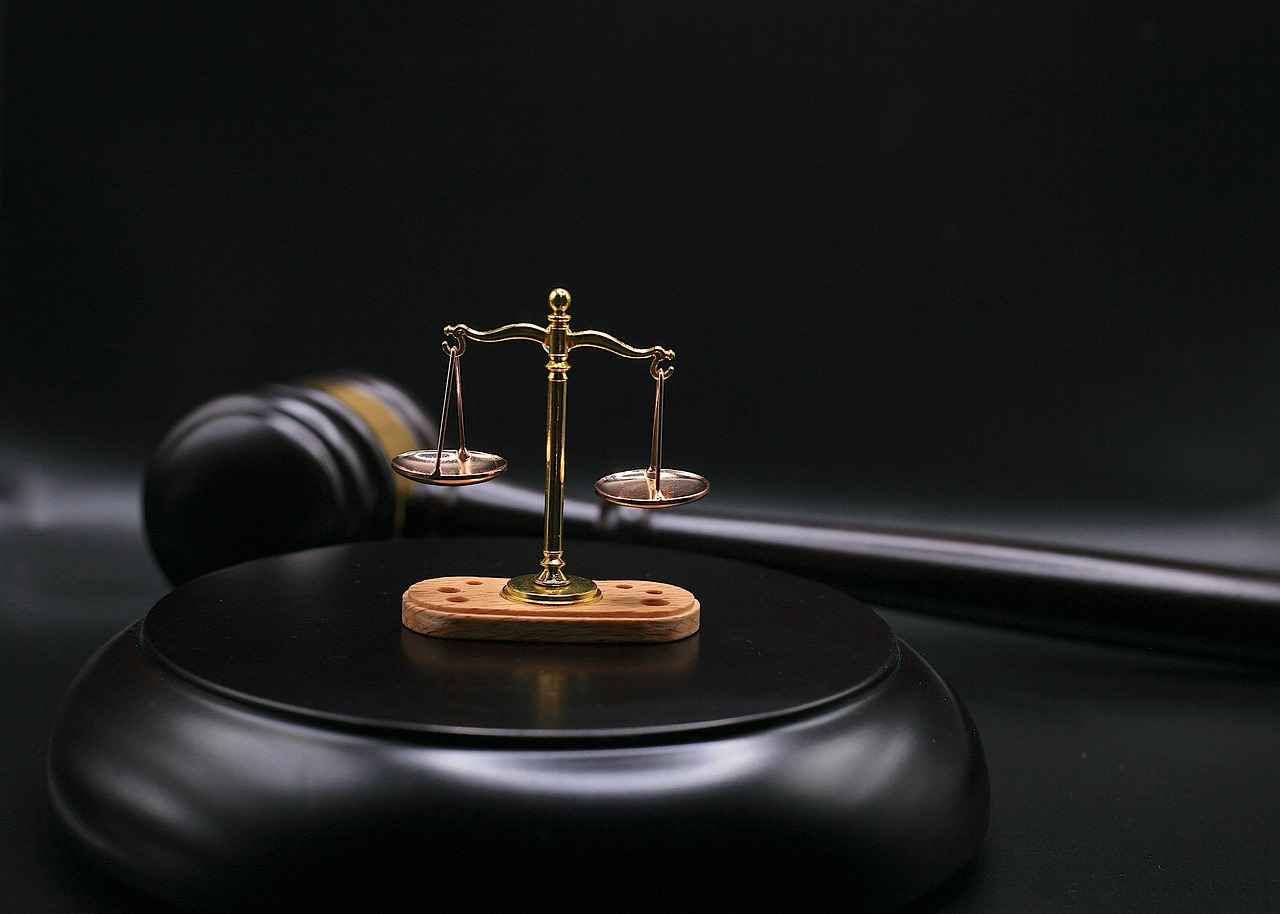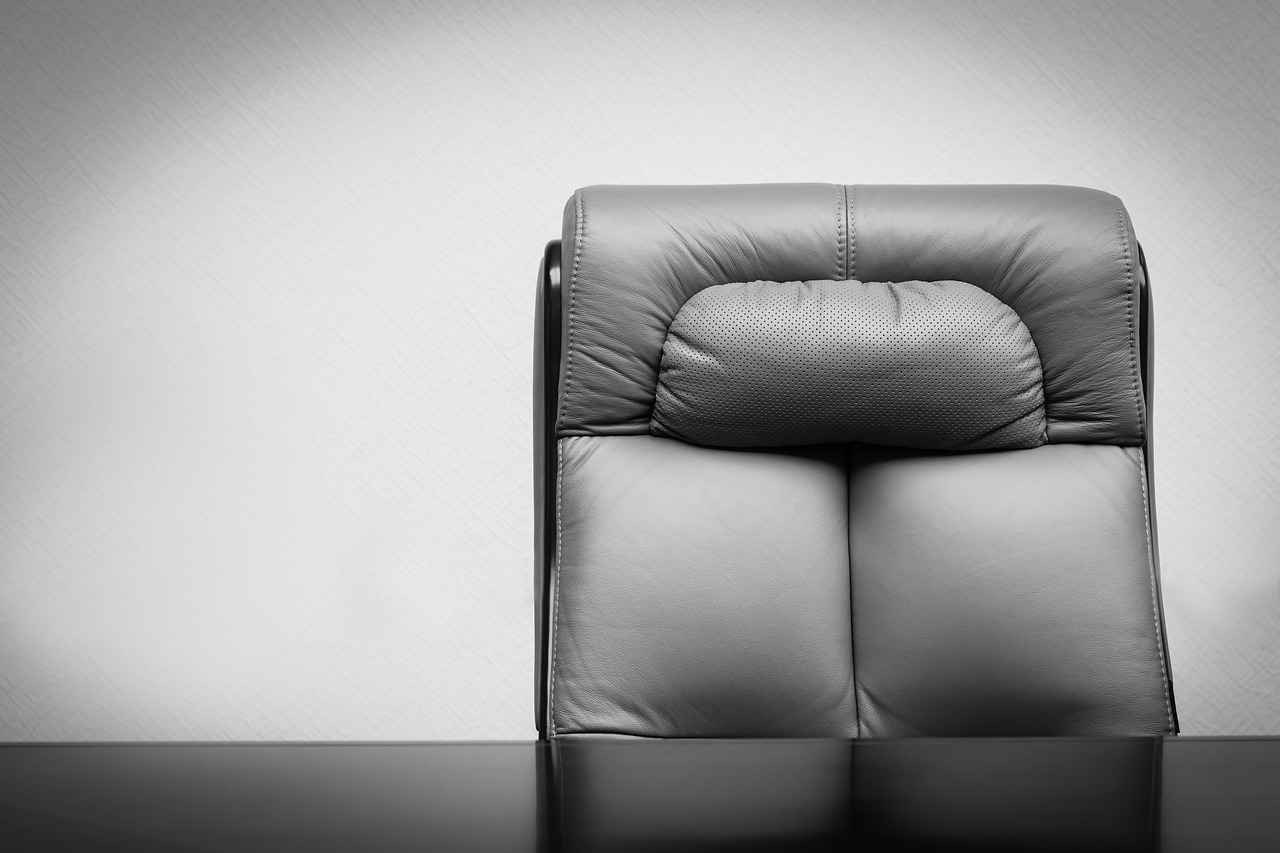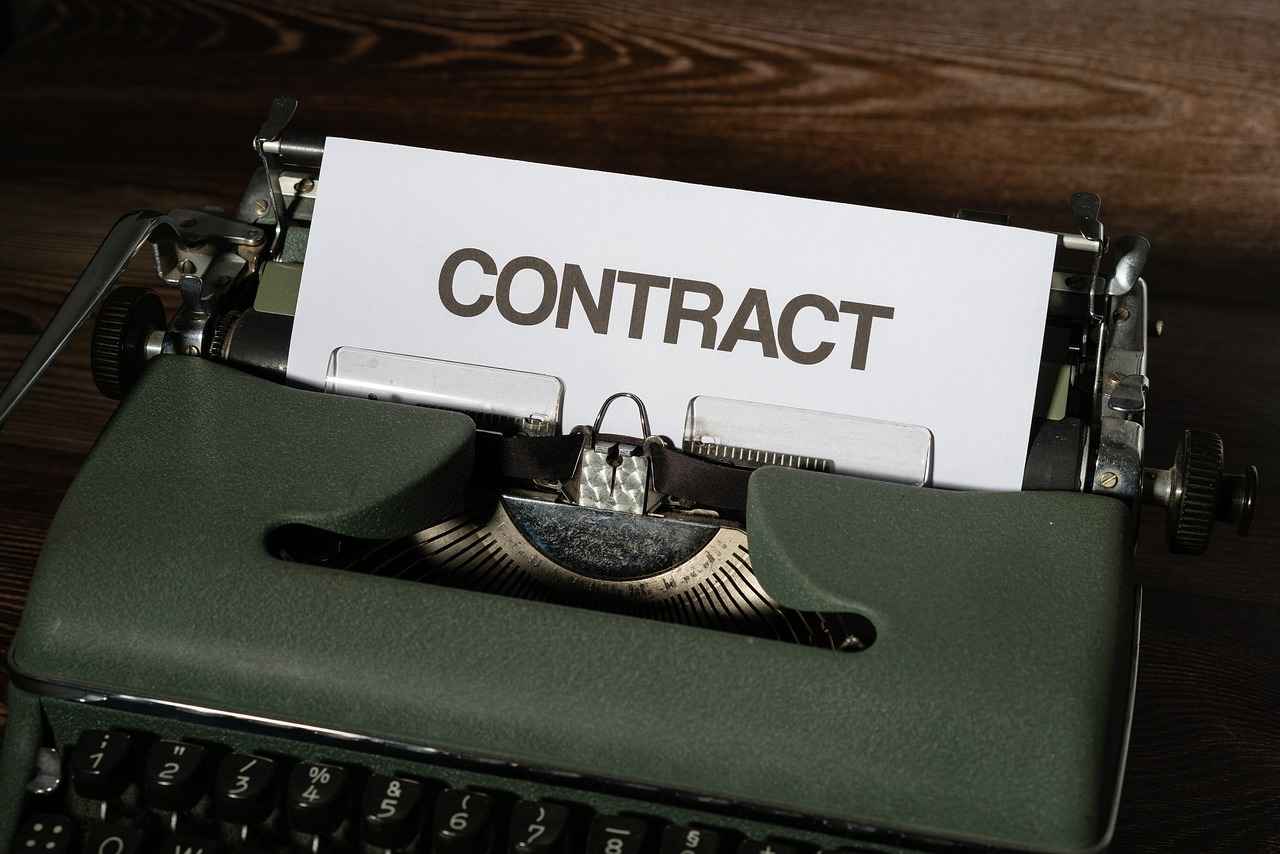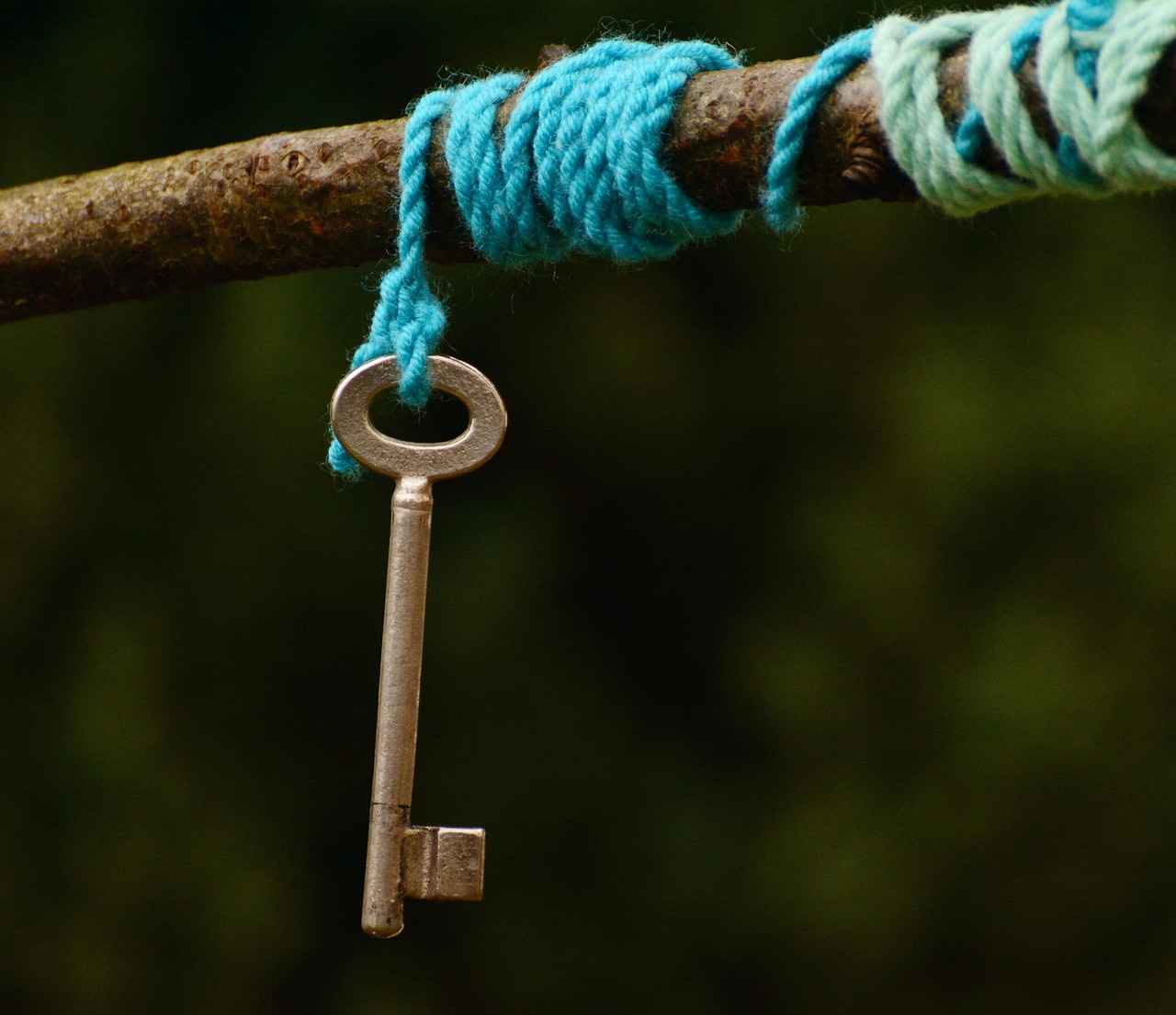This article provides an in-depth look at the most common types of legal cases in the United States and offers expert guidance on how to find qualified attorneys in Atlanta.
Personal injury cases are among the most prevalent legal matters in the U.S., encompassing incidents such as car accidents, slip and falls, and workplace injuries. These cases often hinge on proving negligence, which is why it’s essential to find a competent personal injury lawyer who can effectively represent your interests. When searching for a personal injury attorney, consider their experience, past case results, and client testimonials. Online platforms like Avvo and FindLaw can help you locate qualified attorneys in your area.
Medical malpractice cases arise when healthcare professionals fail to provide the standard of care, resulting in harm to patients. These cases can be complex, requiring specialized knowledge of both law and medicine. To find a skilled medical malpractice attorney, look for someone with a background in healthcare law and a track record of successful settlements or verdicts. Websites such as Martindale-Hubbell can assist you in identifying top-rated attorneys in this field.
Breach of contract disputes often arise in business dealings or personal agreements. Understanding the nuances of contract law is critical when seeking legal representation. Look for attorneys who specialize in contract law and have experience with similar cases. LegalMatch and Rocket Lawyer are excellent resources for finding attorneys with the right expertise.
Property disputes can involve issues of ownership, boundaries, and zoning laws. An experienced property lawyer can provide invaluable guidance in these matters. When searching for a property attorney, consider their familiarity with local real estate laws and their negotiation skills. Referrals from real estate agents can also be beneficial.
Landlord-tenant disputes often revolve around lease agreements and tenant rights. It’s crucial to find a lawyer who understands housing laws specific to your state. Look for attorneys who have experience in tenant advocacy, as they will be more adept at navigating these issues. Resources like Nolo can help you find qualified attorneys in your area.
Defamation cases involve false statements that harm someone’s reputation. To navigate these complex legal waters, you need a lawyer skilled in media law. When searching for a defamation attorney, check for their experience with similar cases and their understanding of First Amendment rights. Online legal directories can help you find attorneys with the necessary expertise.
Employment disputes can range from wrongful termination to discrimination. A knowledgeable employment lawyer can help you understand your rights and pursue justice. When looking for an employment attorney, focus on their experience with labor law and employee rights. Websites like Lawyers.com can provide reviews and ratings to assist in your search.
Product liability cases arise when consumers are injured by defective products. Finding an attorney experienced in consumer protection laws is essential for your claims. Look for lawyers who have successfully handled similar cases and have a solid understanding of product safety regulations. Legal referral services can connect you with qualified professionals.
Wrongful death cases occur when negligence leads to fatal accidents. An attorney specializing in this area can guide you through the legal process while providing compassionate support. When searching for a wrongful death lawyer, consider their experience in handling sensitive cases and their ability to negotiate settlements. Personal referrals and online reviews can help you find the right fit.
Class action lawsuits allow individuals to sue as a group for common grievances, often against large corporations. Finding a lawyer experienced in class actions is essential for your case. Look for attorneys who have successfully led class action suits and have a deep understanding of the legal framework involved. Legal networks and advocacy groups can be valuable resources in this search.
Criminal defense cases can range from assault to theft. Finding a skilled criminal defense attorney is crucial for safeguarding your rights. When seeking representation, look for lawyers with a strong track record in criminal law and familiarity with local courts. Resources like Justia can help you find experienced criminal defense attorneys.
Family law encompasses various issues, including divorce and child custody. A qualified family law attorney can help you navigate these emotionally charged situations effectively. When searching for a family lawyer, consider their experience with similar cases and their approach to conflict resolution. Personal recommendations and online legal directories can assist in finding the right attorney.
Bankruptcy cases provide individuals a fresh financial start. Knowing how to find a knowledgeable bankruptcy attorney can ease your financial burdens and guide you through the process. Look for attorneys who specialize in bankruptcy law and have a solid understanding of the different bankruptcy chapters. Online resources can help you compare attorneys based on their experience and client reviews.

Understanding Personal Injury Cases
When it comes to legal matters, personal injury cases rank among the most frequently encountered. These cases typically arise from accidents or negligence, leading to physical or psychological harm to individuals. Understanding the intricacies of personal injury law is essential for anyone who has suffered an injury due to someone else’s actions.
Finding a competent personal injury lawyer is crucial for the success of your case. Here are some key aspects to consider when searching for the right attorney:
- Experience and Specialization: Look for attorneys who specialize in personal injury law. Their experience in handling similar cases can provide you with a significant advantage.
- Track Record: Review the lawyer’s history of settlements and verdicts. A lawyer with a strong track record of successful outcomes is likely to be more effective.
- Client Reviews and Testimonials: Online reviews from previous clients can give you insight into the attorney’s communication skills, professionalism, and overall effectiveness.
- Initial Consultation: Most personal injury lawyers offer free consultations. Use this opportunity to discuss your case, assess their understanding, and gauge your comfort level with them.
- Contingency Fees: Many personal injury lawyers work on a contingency fee basis, meaning they only get paid if you win your case. Ensure you understand the fee structure before hiring.
Additionally, consider the following red flags when selecting a personal injury lawyer:
- Lawyers who guarantee a specific outcome are often not trustworthy.
- Be wary of attorneys who pressure you to settle quickly without fully exploring your options.
- A lack of transparency regarding fees and expenses can indicate potential issues down the line.
In major cities like New York City, Los Angeles, and Chicago, the competition among personal injury lawyers is intense. Utilize online legal directories, bar association referrals, and personal recommendations to ensure you find a qualified attorney. Remember, your choice of lawyer can significantly impact your case’s outcome, so take the time to research and choose wisely.
Ultimately, understanding personal injury cases and knowing how to find a qualified lawyer can make a significant difference in your pursuit of justice and compensation for your injuries.

Medical Malpractice: What You Need to Know
Medical malpractice is a serious issue that arises when healthcare professionals fail to provide the standard of care expected, resulting in harm to patients. This can include errors in diagnosis, treatment, aftercare, or health management. Understanding the complexities of medical malpractice is essential for anyone who may find themselves in such a situation. The impact of medical negligence can be devastating, leading to long-term health complications, emotional distress, and financial burdens.
Why You Need a Specialized Attorney
When facing a medical malpractice case, the importance of hiring a specialized attorney cannot be overstated. A lawyer with experience in medical malpractice understands the nuances of healthcare laws and the medical field. They can effectively assess your case, gather the necessary evidence, and navigate the complexities of medical records and expert testimonies. A specialized attorney increases the likelihood of a favorable outcome, as they are familiar with the tactics that insurance companies and healthcare providers may employ to minimize their liability.
What to Look for in a Medical Malpractice Attorney
- Experience: Look for an attorney who has a proven track record in handling medical malpractice cases. They should have experience in both negotiating settlements and litigating cases in court.
- Credentials: Verify the attorney’s qualifications, including their education, bar admissions, and any specialized certifications in medical malpractice or personal injury law.
- Reputation: Research online reviews and testimonials from previous clients. A good reputation among peers and clients can be a strong indicator of an attorney’s capabilities.
- Communication: Choose an attorney who communicates clearly and keeps you informed throughout the legal process. You should feel comfortable asking questions and discussing your concerns.
- Contingency Fees: Many medical malpractice attorneys work on a contingency fee basis, meaning they only get paid if you win your case. This arrangement can reduce financial stress as you pursue your claim.
Red Flags to Avoid
- Lack of Experience: Be cautious of attorneys who do not specialize in medical malpractice or have minimal experience in this area.
- High Turnover Rate: If a law firm has a high turnover rate of attorneys, it may indicate issues within the firm that could affect your case.
- Poor Communication: An attorney who is unresponsive or does not communicate effectively may not prioritize your case.
- Unrealistic Promises: Be wary of attorneys who guarantee specific outcomes or promise you a large settlement without thoroughly assessing your case.
How to Find a Qualified Medical Malpractice Attorney
Finding the right attorney for your medical malpractice case can be a daunting task, especially in major metropolitan areas like New York City, Los Angeles, and Chicago. Here are some effective methods to help you in your search:
- Online Legal Directories: Websites like Avvo, Martindale-Hubbell, and FindLaw provide comprehensive listings of attorneys, along with reviews and ratings. You can filter your search by location and specialty.
- Referrals: Ask friends, family, or colleagues for recommendations. Personal referrals can provide insight into an attorney’s work ethic and effectiveness.
- Bar Associations: Contact your local or state bar association for referrals to qualified attorneys who specialize in medical malpractice.
- Consultations: Schedule initial consultations with potential attorneys. Many offer free consultations, allowing you to discuss your case and evaluate their approach without financial commitment.
Understanding the Legal Process
Once you have selected a medical malpractice attorney, it is crucial to understand the legal process involved in your case. The first step is typically filing a complaint, followed by the discovery phase, where both parties gather evidence. This may include obtaining medical records, interviewing witnesses, and consulting medical experts. Your attorney will guide you through each step, ensuring that you are well-prepared for negotiations or trial.
In summary, medical malpractice cases require specialized legal expertise due to their complexity and the potential for significant consequences. By taking the time to find a qualified attorney, you can better navigate the legal landscape and work towards achieving a just resolution for your case.

Breach of Contract: Legal Implications
Breach of contract cases are a significant aspect of contract law, arising when one party fails to fulfill their obligations under a legally binding agreement. These disputes can involve various agreements, from employment contracts to real estate transactions. Understanding the legal implications of a breach is crucial for both individuals and businesses, as it can lead to substantial financial losses and reputational damage.
In these cases, it is essential to determine whether a breach is material or minor. A material breach occurs when one party’s failure to perform undermines the contract’s entire purpose, allowing the non-breaching party to seek damages or terminate the agreement. In contrast, a minor breach may not significantly affect the contract’s overall intent, often resulting in the non-breaching party being entitled to a remedy but not termination.
To successfully navigate a breach of contract case, it is vital to gather all relevant documentation, including the original agreement, communication records, and any evidence of damages incurred. This documentation will be crucial when presenting your case to an attorney or in court.
When seeking an attorney specializing in breach of contract cases, consider the following steps:
- Research Experience: Look for attorneys with extensive experience in contract law and a proven track record of handling breach of contract cases.
- Check Credentials: Verify their qualifications, including education, bar admissions, and any specialized certifications in contract law.
- Read Reviews: Look for client testimonials and reviews on legal platforms to gauge the attorney’s reputation and success rate.
- Consultation: Schedule initial consultations to discuss your case and assess the attorney’s communication style and understanding of your needs.
- Ask About Fees: Understand their fee structure, whether it’s hourly, flat rate, or contingent, to avoid any surprises later.
Red flags to watch out for include:
- Attorneys who promise guaranteed outcomes, as no legal case can be guaranteed.
- A lack of clear communication or responsiveness during initial consultations.
- High-pressure tactics to sign agreements or pay fees without sufficient time for consideration.
By taking these steps, you can find a qualified attorney who can effectively advocate for your interests in breach of contract cases. Remember, understanding the nuances of contract law not only helps you identify the right legal representation but also empowers you to protect your rights and interests in any contractual agreement.

Property Disputes: Navigating Legal Challenges
Property disputes can arise from various issues, including ownership conflicts, boundary disagreements, and title defects. These disputes can be complex and emotionally charged, often involving significant financial stakes. When faced with such challenges, it is crucial to seek the assistance of an experienced property lawyer who can provide both guidance and representation throughout the legal process.
One common source of property disputes is boundary issues. Neighbors may have differing interpretations of where their property lines lie, leading to conflicts over land use, fencing, and encroachments. In these cases, a property lawyer can help by reviewing surveys, historical deeds, and other relevant documents to establish the correct boundaries. They can also assist in negotiating with the opposing party or represent you in court if necessary.
Another frequent cause of property disputes is ownership conflicts. This can occur in situations where multiple parties claim rights to a single property, such as in inheritance cases or joint ownership situations. A skilled property lawyer can help clarify ownership rights, mediate disputes, and, if needed, initiate legal action to resolve the matter.
Title defects can also lead to property disputes. Issues such as liens, unpaid taxes, or unclear titles can complicate ownership. A property lawyer can conduct a thorough title search to identify any potential problems and work to resolve them, ensuring that your ownership is secure and undisputed.
When searching for a property lawyer, consider the following tips:
- Experience: Look for an attorney with extensive experience in property law, particularly in handling cases similar to yours.
- Specialization: Ensure that the lawyer specializes in property disputes, as this area of law can be quite intricate.
- Reputation: Check online reviews, testimonials, and ratings from previous clients to gauge the lawyer’s effectiveness and professionalism.
- Consultation: Many lawyers offer free initial consultations. Use this opportunity to ask questions and assess whether you feel comfortable with their approach.
- Fees: Understand the lawyer’s fee structure upfront, including any retainer fees, hourly rates, or contingency fees.
In addition to these tips, be wary of red flags when hiring a property lawyer. Avoid attorneys who make unrealistic promises or those who pressure you into making quick decisions. A trustworthy lawyer will provide you with clear, honest advice and will take the time to explain your options thoroughly.
In conclusion, property disputes can be daunting, but with the right legal support, you can navigate these challenges effectively. An experienced property lawyer will not only help you understand your rights but also work diligently to protect your interests throughout the legal process.

Landlord-Tenant Disputes: Rights and Responsibilities
Landlord-tenant disputes are a common occurrence in rental housing situations, often leading to misunderstandings and legal conflicts. These disputes typically arise from issues related to lease agreements, tenant rights, and the responsibilities of both landlords and tenants. It is essential for both parties to understand their rights and obligations under the law to prevent disputes from escalating.
When facing a landlord-tenant dispute, the first step is to thoroughly review your lease agreement. This document outlines the terms and conditions of the rental arrangement, including payment obligations, maintenance responsibilities, and rules regarding property use. Familiarizing yourself with the lease can help clarify your position in a dispute.
In the event of a disagreement, it is crucial to communicate effectively with the other party. Open lines of communication can often resolve issues without the need for legal intervention. However, if discussions fail, seeking legal counsel may become necessary. Knowing how to find a lawyer who specializes in housing laws can significantly protect your interests.
To locate a qualified attorney, consider the following methods:
- Referrals: Ask friends or family for recommendations. Personal experiences can lead you to trustworthy lawyers.
- Online Directories: Utilize legal directories such as Avvo or Martindale-Hubbell to find lawyers specializing in landlord-tenant law.
- Local Bar Association: Contact your local bar association for a referral service that can connect you with experienced attorneys in your area.
When evaluating potential lawyers, look for specific credentials:
- Experience: Ensure the attorney has substantial experience in landlord-tenant disputes.
- Client Reviews: Check online reviews and testimonials to gauge client satisfaction.
- Free Consultations: Many lawyers offer free initial consultations; use this opportunity to assess their knowledge and approach.
Be cautious of red flags when hiring an attorney:
- Lack of Communication: If a lawyer is hard to reach or unresponsive, consider it a warning sign.
- Unclear Fee Structures: Ensure that the attorney provides a transparent breakdown of their fees to avoid unexpected costs.
- Pressure Tactics: Avoid lawyers who pressure you into making quick decisions or signing contracts without fully understanding them.
Understanding your rights as a tenant is equally important. In many jurisdictions, tenants are protected by laws that govern issues like eviction processes, security deposits, and the right to a habitable living environment. Familiarize yourself with local housing laws to strengthen your position in any dispute.
Ultimately, the key to resolving landlord-tenant disputes lies in knowledge, communication, and the ability to find the right legal representation. By being proactive and informed, you can navigate these challenges effectively and protect your rights as a tenant.

Defamation Cases: Libel and Slander Explained
Defamation cases are a critical aspect of the legal landscape, particularly as they pertain to the protection of an individual’s reputation. These cases arise when false statements—either spoken (slander) or written (libel)—harm someone’s personal or professional standing. In an era where information spreads rapidly through social media and other platforms, understanding the nuances of defamation law is essential for anyone who feels their reputation has been unjustly tarnished.
When pursuing a defamation case, it is vital to engage a lawyer who specializes in media law or defamation cases. These legal professionals possess the expertise necessary to navigate the complexities of proving that a statement was not only false but also damaging. The burden of proof lies with the plaintiff, who must demonstrate that the statement was made with actual malice or negligence, depending on whether the plaintiff is a public figure or a private individual.
Here are some essential steps to consider when searching for a qualified defamation attorney:
- Research Credentials: Look for lawyers with specific experience in defamation and media law. Check their track records, focusing on past cases they have handled and their outcomes.
- Consult Reviews and Testimonials: Online platforms like Avvo and Martindale-Hubbell provide ratings and reviews from former clients, which can offer insight into their professionalism and effectiveness.
- Assess Communication Skills: During the initial consultation, pay attention to how well the lawyer communicates complex legal concepts. A good attorney should be able to explain the legal process clearly and answer your questions thoroughly.
- Evaluate Their Approach: Different attorneys have different strategies for handling cases. Some may prefer aggressive litigation, while others may focus on negotiation and settlement. Choose one whose approach aligns with your goals.
- Discuss Fees: Understand the lawyer’s fee structure. Many defamation attorneys work on a contingency basis, meaning they only get paid if you win your case. Ensure you are clear on all potential costs involved.
It is also important to be aware of red flags when selecting a defamation lawyer:
- Lack of Specialization: Avoid attorneys who do not have a clear focus on defamation or media law, as they may not be familiar with the intricacies of these cases.
- Overpromising Results: Be cautious of lawyers who guarantee specific outcomes. Legal cases can be unpredictable, and no attorney should promise a win.
- Poor Communication: If an attorney is unresponsive or does not take the time to address your concerns during initial meetings, it may indicate how they will handle your case.
In summary, defamation cases require a nuanced understanding of both the legal framework and the specific circumstances surrounding each case. By taking the time to find a qualified attorney, you can better position yourself for success in protecting your reputation. Remember, a strong legal advocate can make a significant difference in the outcome of your defamation case.

Employment Disputes: Protecting Your Rights
Employment disputes are a significant aspect of labor law, and they can encompass a wide range of issues, including wrongful termination, discrimination, harassment, and wage disputes. Understanding your rights as an employee is crucial in navigating these complex situations. In this section, we will explore various employment disputes, the importance of hiring a knowledgeable employment lawyer, and how to find the best legal representation in Atlanta, Georgia, and beyond.
Employment disputes can arise in numerous forms. For instance, wrongful termination occurs when an employee is fired for illegal reasons, such as discrimination based on race, gender, age, or other protected characteristics. Discrimination cases can involve unequal treatment in hiring, promotions, or job assignments, while harassment cases may include unwanted advances or hostile work environments. Additionally, wage disputes often arise when employees are not compensated fairly for their work, including issues related to overtime pay or unpaid wages.
When facing an employment dispute, it is essential to consult with a qualified employment lawyer who understands the intricacies of labor laws. A skilled attorney can help you assess your situation, gather necessary evidence, and represent you in negotiations or court proceedings. They can also provide valuable insights into the legal processes involved, helping you make informed decisions about your case.
To find the best employment lawyer in Atlanta, consider the following strategies:
- Research Online Directories: Websites like Avvo, FindLaw, and Martindale-Hubbell allow you to search for lawyers based on their practice areas and location. Look for attorneys with high ratings and positive reviews.
- Check Credentials: Ensure that the lawyer you choose is licensed to practice in Georgia and has experience specifically in employment law. Look for any additional certifications or memberships in professional organizations.
- Ask for Referrals: Reach out to friends, family, or colleagues who may have had similar legal issues. Personal recommendations can often lead you to trustworthy legal representation.
- Schedule Consultations: Many lawyers offer free initial consultations. Use this opportunity to discuss your case, assess the lawyer’s communication style, and determine if you feel comfortable working with them.
- Evaluate Experience: Inquire about the lawyer’s experience with cases similar to yours. An attorney with a proven track record in employment disputes can provide invaluable guidance.
When meeting with potential lawyers, pay attention to red flags such as:
- Vague Promises: Be wary of lawyers who guarantee specific outcomes or make unrealistic promises about your case.
- Lack of Communication: Effective communication is vital. If a lawyer is difficult to reach or does not respond promptly to your inquiries, it may signal future issues.
- High Fees Without Clarity: Ensure that you understand the lawyer’s fee structure upfront. Avoid attorneys who are not transparent about their billing practices.
In conclusion, navigating employment disputes can be challenging, but with the right legal support, you can protect your rights and pursue justice. By following the guidelines outlined above, you can find a qualified employment lawyer who will advocate for your interests and help you achieve a favorable resolution to your case.

Product Liability: Holding Companies Accountable
Product liability cases are a critical area of law that addresses injuries or damages caused by defective or unsafe products. These cases can arise from various issues, including design flaws, manufacturing defects, or inadequate warnings and instructions. When consumers are harmed by such products, it is essential to hold the responsible parties accountable, which often includes manufacturers, distributors, and retailers.
Finding a lawyer who specializes in consumer protection and product liability is vital for successfully navigating these complex legal waters. A knowledgeable attorney can help you understand your rights and guide you through the process of filing a claim. Here are some strategies to locate the best legal representation for product liability cases:
- Research Online: Utilize legal directories like Avvo or FindLaw to search for attorneys who specialize in product liability in your area. Look for those with high ratings and positive client reviews.
- Check Credentials: Ensure that the attorney is licensed to practice in your state and has significant experience in handling product liability cases. Membership in professional organizations, such as the American Association for Justice, can also indicate a commitment to this area of law.
- Consultation: Schedule consultations with multiple attorneys. This initial meeting is often free and provides an opportunity to discuss your case and gauge the attorney’s expertise and approach.
- Ask About Past Cases: Inquire about the attorney’s track record with product liability cases. Successful outcomes in similar cases can be a good indicator of their capability.
- Evaluate Communication: Choose an attorney who communicates clearly and promptly. You want someone who will keep you informed throughout the legal process.
When considering a product liability case, it is also essential to be aware of the potential challenges involved. These cases can be complicated, often requiring expert testimony and substantial evidence to prove that a product was indeed defective and caused harm. Therefore, having a lawyer with a strong understanding of product safety regulations and the ability to navigate the intricacies of the legal system is crucial.
In addition to seeking out qualified attorneys, be cautious of red flags during your search. Avoid lawyers who make unrealistic promises about the outcome of your case or those who seem more interested in quick settlements than pursuing justice for their clients. A reputable attorney will provide a realistic assessment of your case and discuss potential outcomes without guaranteeing success.
Product liability cases can be emotionally and financially draining, but with the right legal representation, you can seek justice and compensation for your injuries. By taking the time to find a qualified attorney, you can ensure that your rights are protected and that you have the best chance of a favorable outcome.

Wrongful Death: Seeking Justice for Loved Ones
Wrongful death cases arise when negligence or intentional acts lead to the untimely death of an individual. These tragic situations can stem from various circumstances, including automobile accidents, medical malpractice, or defective products. The emotional toll on the surviving family members is immense, and navigating the legal landscape during such a difficult time can be overwhelming. This is where a qualified attorney specializing in wrongful death cases can provide invaluable support.
When pursuing a wrongful death claim, it is essential to understand the key elements that must be established in court. First, you must demonstrate that the deceased’s death was caused by the negligence or wrongful act of another party. Additionally, it is crucial to show that the surviving family members have suffered damages as a result of the loss, which may include loss of income, funeral expenses, and emotional distress.
Finding the right attorney to handle a wrongful death case is a critical step toward achieving justice. Here are some practical tips for locating a qualified lawyer in major cities like Atlanta, Georgia:
- Research Specialization: Look for attorneys who specialize in wrongful death cases. Their expertise will ensure they are familiar with the nuances of these types of claims.
- Check Credentials: Verify the attorney’s credentials, including their education, bar association membership, and any additional certifications in personal injury law.
- Read Reviews: Utilize online platforms to read client reviews and testimonials. Websites like Avvo and Yelp can provide insights into an attorney’s reputation and success rate.
- Schedule Consultations: Many attorneys offer free initial consultations. Use this opportunity to ask questions about their experience, approach to wrongful death cases, and fee structure.
- Assess Communication: During your consultation, pay attention to how the attorney communicates. A good lawyer should be empathetic, responsive, and willing to explain legal concepts in a way that is easy to understand.
- Avoid Red Flags: Be cautious of attorneys who guarantee outcomes or press you to sign contracts without fully explaining the terms. Trustworthy lawyers will provide realistic expectations based on the specifics of your case.
Additionally, it is important to consider the attorney’s track record in handling wrongful death cases. Ask about their past settlements and verdicts, as well as their approach to litigation versus negotiation. A lawyer who is willing to go to trial if necessary can be an asset, especially if the responsible party is not willing to settle fairly.
In wrongful death claims, time is of the essence. Each state has its own statute of limitations, which dictates how long you have to file a lawsuit. In Georgia, for instance, the time limit is typically two years from the date of death. Therefore, it is crucial to act quickly and seek legal representation as soon as possible to preserve your rights.
In conclusion, navigating the complexities of a wrongful death claim requires not only a deep understanding of the law but also a compassionate approach to the emotional aspects of the case. By following the steps outlined above, you can find a qualified attorney who will advocate for your rights and help you seek the justice your loved one deserves.

Class Action Lawsuits: Collective Legal Action
Class action lawsuits serve as a powerful tool for individuals seeking justice against common grievances that affect a larger group. These lawsuits allow people to band together and file a single legal action, often against corporations or entities that may have caused harm through negligence, fraud, or other wrongful acts. Understanding how to find a lawyer experienced in class actions is essential for the success of your case.
When searching for an attorney to represent you in a class action lawsuit, it’s important to consider several factors. First, look for a law firm with a strong track record in handling class action cases. You can start by researching online legal directories such as Avvo or FindLaw, where you can filter lawyers based on their experience and client reviews.
Additionally, consider the credentials of potential attorneys. Look for lawyers who have published articles or spoken at conferences about class action litigation. This demonstrates their expertise and commitment to the field. Furthermore, check if they are members of professional organizations like the American Association for Justice or state bar associations, which can be indicators of their dedication to staying updated on legal developments.
Another practical method is to ask for referrals from individuals who have previously participated in class action lawsuits. Personal recommendations can provide insight into how an attorney handles cases and their effectiveness in achieving favorable outcomes.
When interviewing potential lawyers, be sure to ask pertinent questions such as:
- What is your experience with class action lawsuits?
- Can you provide examples of successful cases you’ve handled?
- What is your fee structure? Do you work on a contingency basis?
- How do you communicate with your clients throughout the process?
It’s also important to be aware of red flags when selecting a lawyer. Be cautious of attorneys who guarantee specific outcomes or pressure you to sign contracts quickly. A reputable lawyer will provide you with transparent information about the risks and challenges associated with your case.
In major metropolitan areas like New York City, Los Angeles, and Chicago, the legal market is competitive, and many attorneys specialize in class action lawsuits. Utilize online resources and local bar associations to find qualified candidates. Additionally, consider attending legal workshops or seminars where you can meet attorneys and learn more about their practices.
Ultimately, finding the right lawyer for your class action lawsuit involves thorough research and careful consideration. By following these guidelines, you can enhance your chances of assembling a strong legal team that is equipped to advocate for your rights and the rights of others affected by a similar issue.

Criminal Defense: Assault, Battery, and More
When it comes to the realm of criminal defense, the stakes are incredibly high. Cases can encompass a wide array of offenses, ranging from assault and battery to more serious allegations such as theft, drug offenses, and even homicide. Understanding the complexities of these cases is crucial not only for the accused but also for their loved ones who may be navigating the emotional turmoil that accompanies legal troubles.
Finding a skilled criminal defense attorney is essential for safeguarding your rights and ensuring that you receive a fair trial. Here are several key aspects to consider when looking for legal representation in criminal defense cases.
- Experience and Specialization: Look for attorneys who specialize in criminal law and have substantial experience handling cases similar to yours. An attorney’s familiarity with the local court system and judges can be invaluable.
- Reputation: Research online reviews and testimonials from former clients. Websites like Avvo and Martindale-Hubbell can provide insights into an attorney’s reputation and peer reviews.
- Consultation: Many attorneys offer free initial consultations. Use this opportunity to assess their communication style, approach to your case, and overall compatibility with your needs.
- Fees and Payment Plans: Understand the attorney’s fee structure upfront. Some may charge a flat fee, while others bill hourly. Discuss payment plans if you anticipate financial difficulties.
- Red Flags: Be cautious of attorneys who guarantee results or pressure you into making quick decisions. Trustworthy attorneys will provide realistic expectations and take the time to understand your situation.
In major cities like New York City, Los Angeles, and Chicago, the competition among criminal defense lawyers can be fierce. Utilize legal directories and local bar associations to compile a list of potential candidates. Additionally, consider reaching out to friends or family for referrals, as personal recommendations can often lead to finding a trustworthy attorney.
Remember, the right attorney can make all the difference in the outcome of your case. Whether facing a minor charge or a serious felony, having an experienced legal advocate by your side can help you navigate the complexities of the criminal justice system.

Family Law: Divorce and Child Custody Matters
Family law is a crucial area of legal practice that addresses a wide range of issues affecting families, particularly during challenging times. Among the most significant matters under family law are divorce and child custody. Navigating these emotionally charged situations can be overwhelming, which is why enlisting the help of a qualified family law attorney is essential.
When facing a divorce, individuals often find themselves dealing with not only the dissolution of their marriage but also the division of assets, alimony, and child support arrangements. A skilled attorney can provide invaluable guidance on how to protect your interests and ensure a fair settlement. They can help you understand your rights regarding property division, which may include both marital and separate assets. Additionally, your attorney can assist in negotiating spousal support, ensuring that you are not left financially vulnerable post-divorce.
Child custody matters are equally complex, as they involve determining the living arrangements and decision-making responsibilities for children. Courts typically prioritize the best interests of the child, which can lead to disputes over custody arrangements. An experienced family law attorney can advocate for your parental rights, helping you present a compelling case for custody. They can also guide you through the process of establishing a parenting plan, which outlines visitation schedules and responsibilities.
In addition to divorce and child custody, family law encompasses other critical issues such as child support, spousal support (alimony), and adoption. Child support calculations can be intricate, often based on both parents’ incomes and the child’s needs. A knowledgeable attorney can help ensure that the support amount is fair and sustainable. For those considering adoption, an attorney can navigate the legal complexities involved, ensuring compliance with state and federal laws.
Finding the right family law attorney in a bustling city like Atlanta can be daunting. Here are some practical tips to assist you in your search:
- Seek Recommendations: Ask friends, family, or colleagues for referrals to reputable family law attorneys they have worked with.
- Check Online Reviews: Websites like Avvo, Martindale-Hubbell, and Google Reviews can provide insights into an attorney’s reputation and client satisfaction.
- Verify Credentials: Ensure the attorney is licensed to practice in Georgia and check for any disciplinary actions through the Georgia State Bar Association.
- Schedule Consultations: Many attorneys offer free initial consultations. Use this opportunity to assess their communication style and expertise.
- Discuss Fees: Understand the attorney’s fee structure upfront, including hourly rates, retainer fees, and any additional costs.
When interviewing potential attorneys, consider asking the following questions:
- What is your experience with cases similar to mine?
- How do you approach negotiation and litigation?
- What is your strategy for my case?
- How will you keep me informed about my case’s progress?
Lastly, be cautious of red flags when selecting a family law attorney. Avoid attorneys who guarantee specific outcomes, as family law cases can be unpredictable. Additionally, be wary of those who pressure you into making hasty decisions or who lack transparency regarding their fees and processes.
In conclusion, family law issues such as divorce and child custody require careful consideration and expert guidance. By finding a qualified attorney who understands the complexities of these matters, you can navigate the legal landscape more effectively and work towards a resolution that serves your family’s best interests.

Bankruptcy: Finding Relief from Debt
Bankruptcy can be a daunting and overwhelming process, but it offers individuals a much-needed opportunity for financial recovery. Understanding how to navigate this complex legal landscape is crucial for anyone considering bankruptcy as a means to relieve their debt burdens. The first step in this journey is finding a qualified bankruptcy attorney who can provide the necessary guidance and support.
When searching for a bankruptcy attorney, it is essential to look for someone with a solid background in bankruptcy law. Start by seeking recommendations from friends, family, or financial advisors. Additionally, online platforms such as Avvo and FindLaw can be excellent resources for finding qualified attorneys in your area. These platforms provide client reviews, ratings, and detailed profiles that can help you make informed decisions.
Once you have a list of potential attorneys, consider the following criteria:
- Experience: Look for attorneys who specialize in bankruptcy law and have a proven track record of handling cases similar to yours. An experienced attorney will be familiar with the local bankruptcy court and its procedures.
- Credentials: Check for certifications and memberships in professional organizations, such as the American Bankruptcy Institute or state bar associations. These affiliations can indicate a commitment to staying updated on legal changes and best practices.
- Consultation: Schedule initial consultations with potential attorneys. Many offer free consultations, allowing you to discuss your situation and assess their approach. Pay attention to how they communicate and whether they take the time to address your concerns.
- Fees: Discuss fees upfront to avoid surprises later. Bankruptcy attorneys may charge a flat fee or an hourly rate, so ensure you understand their billing structure.
- Red Flags: Be wary of attorneys who make unrealistic promises, pressure you to file quickly, or lack transparency about their fees. Trust your instincts; if something feels off, it’s essential to continue your search.
In addition to finding the right attorney, it’s important to gather all necessary documentation before filing for bankruptcy. This includes financial statements, tax returns, and information about your debts and assets. A good attorney will guide you through this process, ensuring that you are fully prepared for your bankruptcy filing.
Finally, remember that bankruptcy is not just about eliminating debt; it’s also about rebuilding your financial future. A knowledgeable attorney can help you understand the implications of bankruptcy on your credit score and guide you on steps to take post-bankruptcy to improve your financial standing.
In conclusion, finding the right bankruptcy attorney is a critical step in navigating the bankruptcy process. By conducting thorough research, considering key criteria, and being aware of red flags, you can find a qualified professional who will help you achieve the relief you need from debt.
Frequently Asked Questions
- What types of cases do personal injury lawyers handle?
Personal injury lawyers typically handle cases involving accidents, negligence, and injuries. This includes car accidents, slip and fall incidents, and workplace injuries, among others. If you’ve been hurt due to someone else’s actions, a personal injury lawyer can help you seek compensation.
- How can I find the right attorney for a medical malpractice case?
Finding the right attorney for a medical malpractice case involves looking for someone with experience in healthcare law. You want a lawyer who understands the complexities of medical standards and can effectively argue your case. Don’t hesitate to ask for past case results to gauge their expertise.
- What should I do if I’m facing a breach of contract?
If you’re facing a breach of contract, the first step is to review the agreement thoroughly. It’s crucial to document any communications and seek legal advice to understand your options. An attorney specialized in contract law can help you navigate the situation and protect your interests.
- How do I handle a landlord-tenant dispute?
Handling a landlord-tenant dispute starts with knowing your rights under local housing laws. If discussions don’t resolve the issue, consider consulting a lawyer who specializes in landlord-tenant relations. They can provide guidance on the best course of action to protect your rights.
- What is the process for filing a class action lawsuit?
Filing a class action lawsuit involves gathering a group of individuals who have similar claims. You’ll need to find an attorney with experience in class actions who can help you file the lawsuit and represent the interests of the group. It’s a complex process, but it can be effective for collective grievances.














